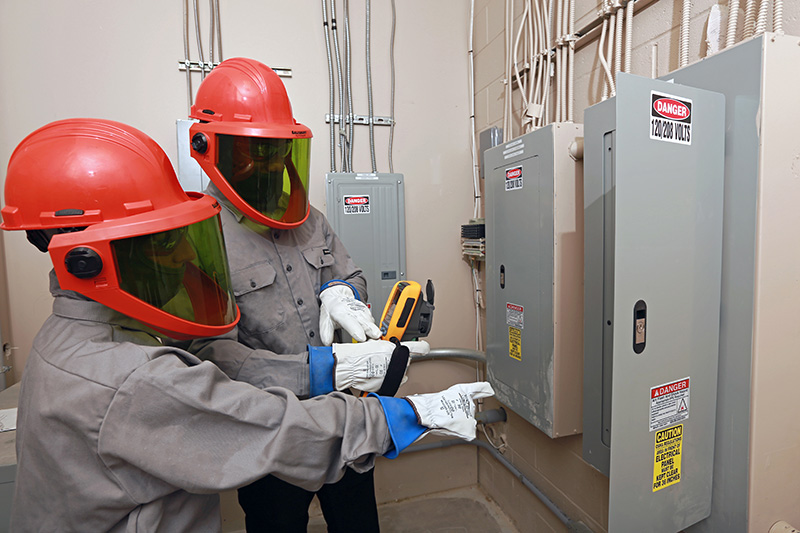
Understanding NFPA 70E Training Requirements
When trying to get into electrical work, you will most likely need to undergo training in safety and maintenance practices. This is to prevent dangerous incidents such as the arc flash. Because of this, it is vital that you get professional certification to do electrical work on a job site.
NFPA 70E certification is a must-have for electrical workers. By taking a course to receive this certification, you can ensure the safety of all of your peers and significantly increase your chances of getting hired by an employer. This article will discuss the importance, requirements, and best way to get your certification.
Table of Contents
Why NFPA 70E Certification is Important
Safety is absolutely the most important factor when it comes to electrical work. Your work should not jeopardize the safety of co-workers and others. NFPA 70E refers to the dangerous event of an arc flash when there is a sudden release of electrical energy through the air.
There are many potential hazards if a job is done incorrectly and an arc flash occurs. One such hazard is electricity exposure. Improper handling of electrical work can lead to exposure to high voltage shocks, possibly resulting in death.
The other main hazard is fire risk.
If an arc flash occurs and comes into contact with flammable materials there is a severe fire or explosion risk, which can cause damages to buildings and put others in danger. There is little room for error for electrical jobs which is why it is so important to get NFPA 70E certification.
Requirements for NFPA 70E
This credential in most cases is standardized for workplace safety during electrical work. While not a law, NFPA 70E is mandated by employers as they can be held liable for any incidents involving electrical work done without certification.
NFPA 70E doesn’t require hands-on training, but it is strongly recommended that those getting the certification work on or near equipment to learn. There are several skill sets that you need to know.
Safety practices and procedures include working on conductors only if there are 50 volts or lower, avoiding faulty equipment and exposed wiring conditions, grounding wires and equipment, and other preventative procedures for humid conditions and power surges. You should also be able to assess risks and have emergency medical response plans and protective equipment.
The list goes on, but through certification, you can learn all of the standard requirements of NFPA 70E.
How to Get Your Certification
Through onsite instructor-led training you can expect to get your certification in 8 hours. You can set up an appointment through online websites for onsite training.
These courses go in-depth with professional advice on practices for identifying and avoiding NFPA 70E or (Arc flash) issues. They cover dozens of topics and procedures like LOTO or (Lockout Tagout) which are for hazards other than an arc flash from electrical issues. This also includes maintenance practices.
In Conclusion
In electrical work there are many anti hazard practices which can only be taught through onsite training. Being able to memorize and deal with these, while also having good maintenance in electrical work can make you highly desirable by employers. Through NFPA 70E certification and training, you can do all of this and become an amazing electrician.








